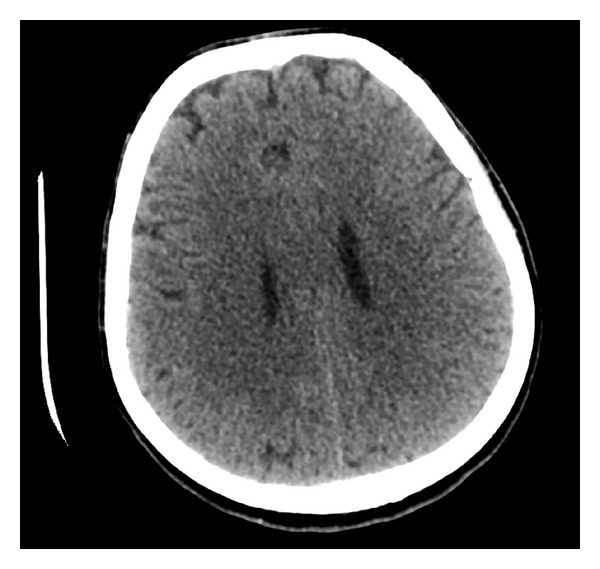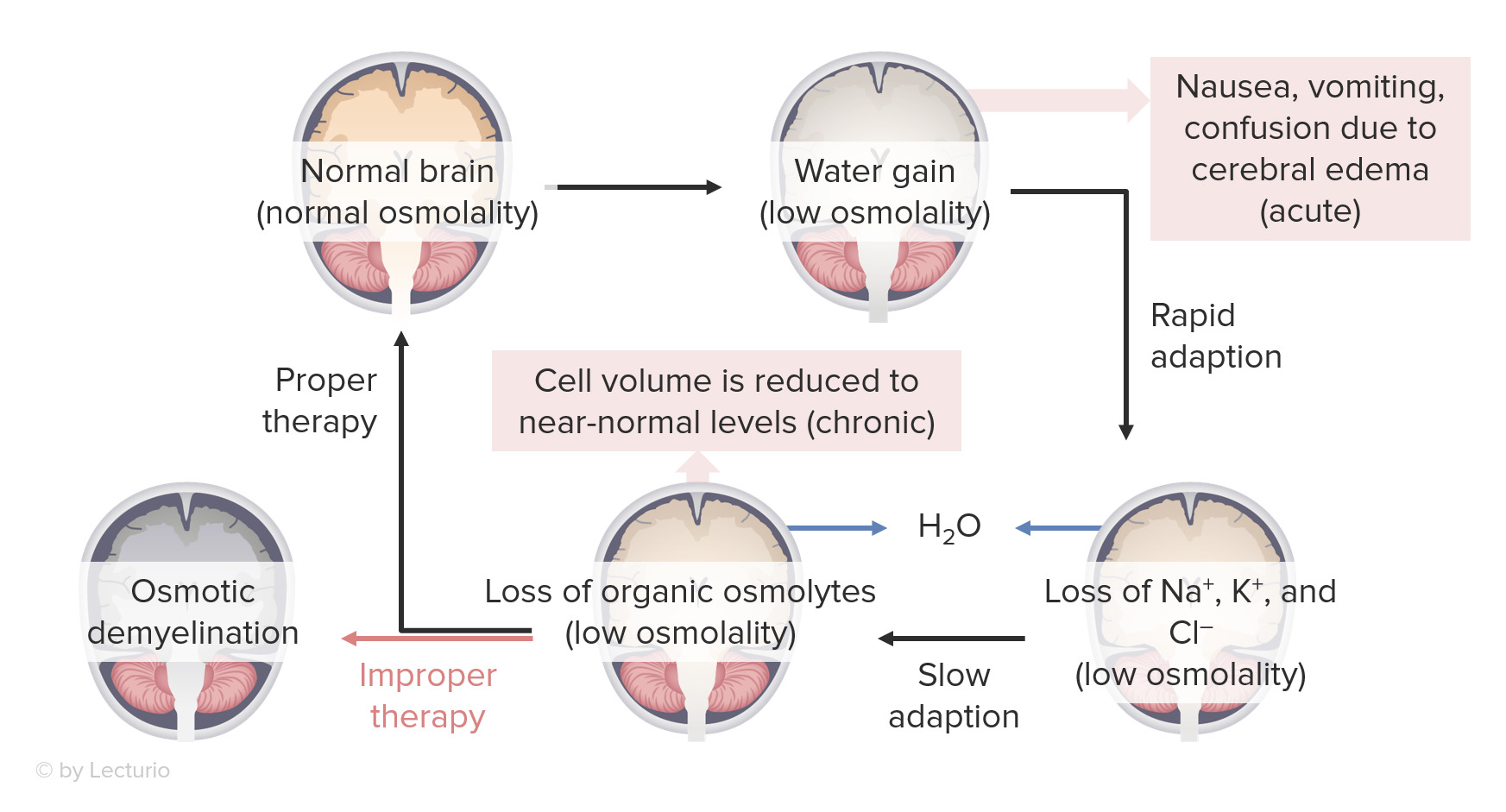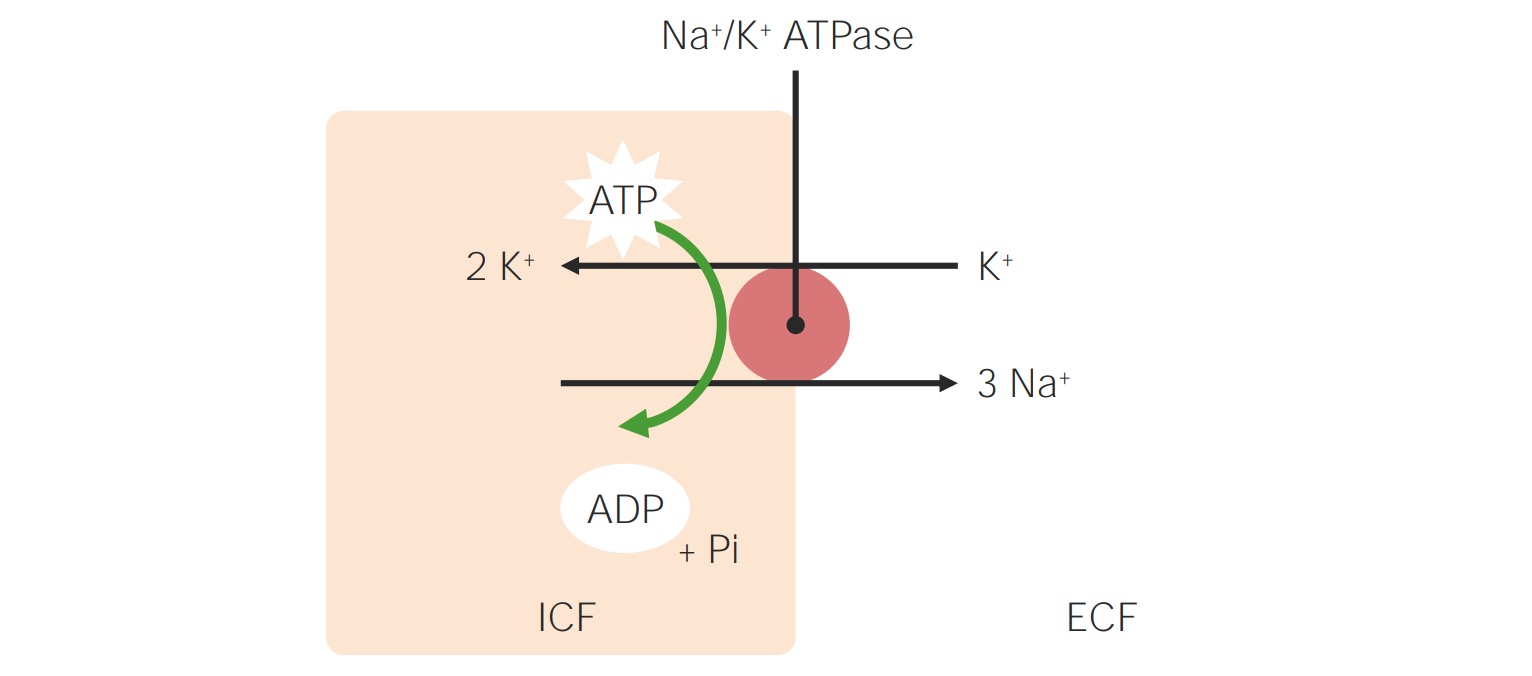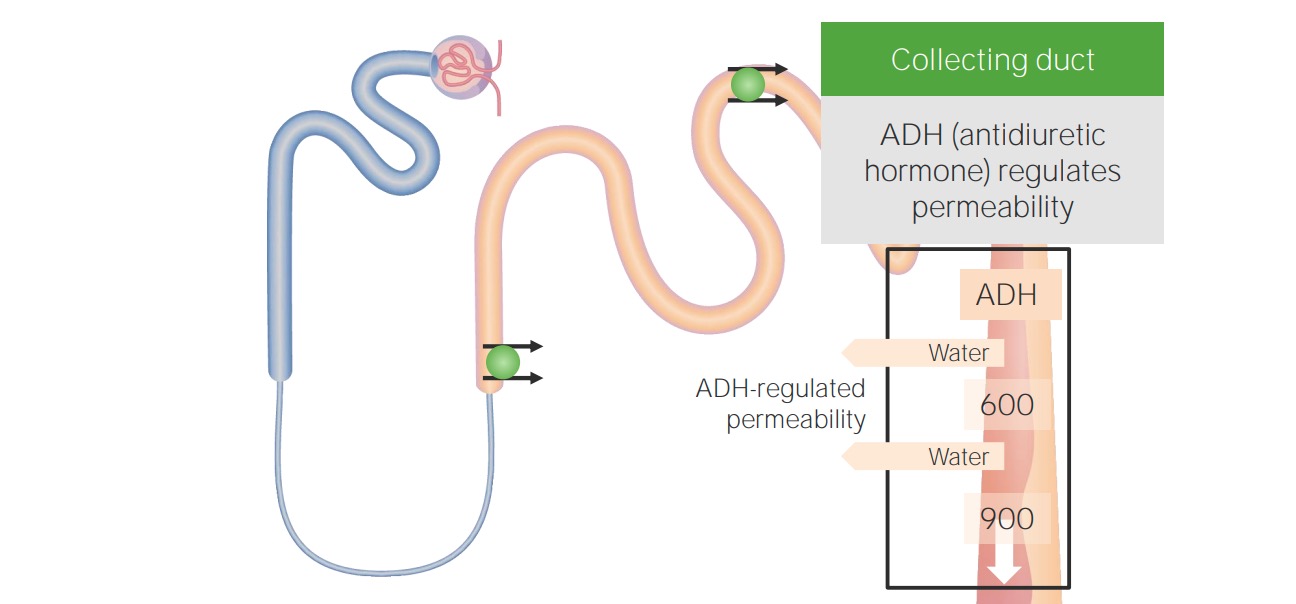Playlist
Show Playlist
Hide Playlist
Euvolemic Hypotonic Hyponatremia
-
Slides Water Balance Hypo and Hypernatremia.pdf
-
Reference List Nephrology.pdf
-
Download Lecture Overview
00:01 Our next category is Euvolemic Hypotonic Hyponatremia. 00:05 This means that patients have a primary water gain with the normal extracellular fluid volume. 00:10 And the patients are euvolemic on exam. 00:13 Some of the causes that we think about are the syndrome of inappropriate ADH secretion or SIADH. 00:20 This can be acquired because of some of the drugs that people take. 00:23 Antiepileptic drugs, some of the type of the psychotropic medications like SSRIs, chronic pain, CNS disorders and malignancies, pulmonary disorders, and patients who are in the postoperative state. 00:36 We can also have hereditary issues causing the syndrome of inappropriate antidiuresis and this is if patients have a gain of function, mutation, and the V2 receptor so that they have aquaporins inserted at all times and they're reabsorbing water, or problems in the hypothalamic sensing receptors. 00:53 So in these situations, urine Osm will be high due to the fact that ADH is concentrating the urine. 00:59 Urine sodium interestingly will also be elevated typically greater than 40 mEq/L and that's because you have a small amount of volume expansion that's induced by water. 01:08 That's going to suppress renin and actually activate some of the ANP or Atrial natriuretic peptide. 01:15 So we see sodium in the urine. 01:18 Another cause of euvolemic hypotonic hyponatremia is primary polydipsia. 01:24 That's excessive water intake that overwhelms the excretory capacity of the kidney. 01:30 In this situations, people are driven to drink. 01:33 Sometimes we refer to this also as psychogenic polydipsia. 01:36 Oftentimes, patients will have a coexistence psychiatric disorder, they might be on medications that cause excessive dry mouth. 01:43 That's one of the things that stimulates them to drink. 01:46 But it's not uncommon to see these patients drink about 16 liters of water per day. 01:52 That's about four gallons, and they don't produce that much solute. 01:56 So that's why they end up having a primary water gain. 02:00 Now, it will be easy to distinguish these patients from SIADH patients because their urine Osm is going to be low. 02:06 ADH here is appropriately suppressed. 02:11 Another cause of euvolemic hypotonic hyponatremia is reduced solute intake. 02:16 Something that we affectionately refer to as beer drinker's potomania, or the tea and toast diet. 02:23 Here, again, water intake will exceed the daily osmolar load. 02:28 Let's look at the example. 02:30 If a patient's daily omolar generation and excretion is only 240 mOsmol of solute per day, and the urine can maximally dilute at let's say 60 mOsmol/L, then it would take four liters of urine to excrete that daily osmolar load. 02:49 So, if one drinks in excess of four liters, then hyponatremia will result. 02:56 Here, once again, the urine Osm is going to be low and that will help to distinguish this disorder from SIADH. 03:05 Hypothyroidism is another cause of euvolemic hypotonic hyponatremia. 03:10 Now, the mechanism behind that is not completely understood, and patients have to be significantly hypothyroid for this to occur. 03:16 But the thought is perhaps there is reduced cardiac contractility and then appropriate ADH stimulation from there. 03:23 Thiazide diuretics are another category that we need to think about with euvolemic hypotonic hyponatremia. 03:28 We see this in our elderly population or a malnourished patients. 03:32 The mechanism in part is due to appropriate ADH stimulation because remember, these patients are losing or inducing sodium loss from their thiazide diuretic. 03:42 But there are other ideologies involved and perhaps there is a direct action on aquaporins stimulation.
About the Lecture
The lecture Euvolemic Hypotonic Hyponatremia by Amy Sussman, MD is from the course Water Balance: Hypo- and Hypernatremia.
Included Quiz Questions
Which of the following is a common cause of SIADH?
- Pneumonia
- Congestive heart failure
- Liver cirrhosis
- Hypothyroidism
Which of the following is associated with primary polydipsia?
- Urine-to-plasma osmolality of <1.0
- Urine sodium of >20 mEq/L
- Lower limb edema
- Orthostatic hypotension
Customer reviews
5,0 of 5 stars
| 5 Stars |
|
5 |
| 4 Stars |
|
0 |
| 3 Stars |
|
0 |
| 2 Stars |
|
0 |
| 1 Star |
|
0 |







